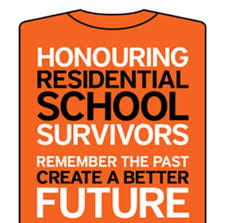Reconciliation is not a destination, but a practice.
- info817584

- Dec 9, 2020
- 3 min read
Working Towards Reconciliation is one of the 4 pillars of 1JustCity’s work, and I think this pillar produces some of the most important work that we do. It’s certainly the part of our mission that gets me the most excited. It’s work that feels urgent, with a presence that rears its head daily in our outreach sites in ways that are impossible to ignore.
1JustCity is rooted in the history of the Christian church; largely the United and Anglican Churches of Canada, who founded our outreach sites many years ago. Many of our staff and volunteers still have deep ties to the church - myself included: a diaconal minister in the United Church of Canada. While we are filled with gratitude for the positive things the church has done to establish and support our outreach sites, we also recognize that this history ties us to a history of oppression and places a burden of responsibility on our backs - Working Towards Reconciliation.
Some of the most gut-wrenching work I have ever done with 1JustCity is the times that Indigenous members of our community have asked me to help them complete their Federal Day School Claim Form. For those who don’t know, this Claim Form is a sickening process where Indigenous survivors of Federal Day Schools are asked to write a detailed account of the abuse they faced in the Day School system, and how the related trauma has impacted their lives, so that they might be awarded a well-deserved reparation payment from the federal government. I have sat with grown men, transcribing their words as they weep and sob uncontrollably - telling me stories of how the church and its members abused them in truly horrific ways.
I could say that it has been an honour to be invited into these stories; to be trusted with them. But in truth, it’s nothing of the sort. For me it induces deep shame, knowing that my ancestors - Christians, clergy people, settlers - perpetrated these acts and recognizing that I continue to benefit from them to this day; and also despair at seeing the depths of the depravity of my ancestors laid bare. But shame and despair on their own are unproductive, so instead I continue to work with 1JustCity to be a part of the healing process.
The work is slow, but I see signs of hope when I watch a group of Indigenous people and settlers dance together joyfully at 1JustCity’s Pow Wow demonstration - taking part in an inter-tribal dance meant to bring people together. Or when an Indigenous grandmother tells me that she sees the cycle of oppression starting to break in her grandchildren as they grow and thrive and dream dreams that were unthinkable to her when she was their age.
Things like this really are hopeful, signs that healing and reconciliation are possible and that they are happening in some small way right before our eyes. But at the end of the day, these signs of hope only really matter in the grand scheme of reconciliation if we can find ways to continue this important work - to nurture these special and fragile moments into concrete healing and meaningful deep change in our country. With that in mind I invite you to get involved - because reconciliation and healing can only happen when we are all working towards it together.
Written by - Josh Ward St. Matthews Maryland Community Ministry













Kommentare